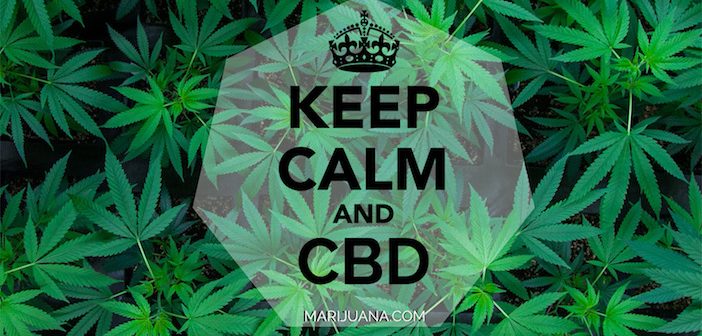Walking into the Niagara Shop Smokers Lounge in Dübendorf, Switzerland, one is reminded instantly of the world-famous Amsterdam coffeeshops. This is because one is able to consume cannabis legally in the smoking-friendly room of the Swiss CBD shop.
The Swiss-grown herbs that are sold and smoked in the cozy shop contain high amounts of cannabidiol (CBD) and a maximum of 1% THC. Strains smoked here are grown by owner Dario Tobler and his partner Markus Walther in their nursery a few kilometers away in Schaffhausen, not far from the famous Rhine Falls. Their company Bio Can AG recognized the emerging trend quite early and started producing CBD-rich varieties for nearly two years. Originally, these strains were only available on their website online but later became available for the CBD coffeeshop. In addition, the in-house nursery supplies many CBD retailers between Zurich, Basel, and Geneva with the coveted buds.
Walther has been growing cannabis since the late-90s. In those days, cannabis and hashish production were quasi-legal, after resourceful activists had discovered a loophole in the Swiss Narcotics Act. The state, however, closed the loophole in 2003 after neighboring countries and the United Nations objected to the less than clear cannabis policy.
Using CBD for tobacco cessation
At the end of 2016, the first tobacco substitute from CBD-rich hemp buds received approval by the Swiss ministry of health. In Switzerland, there are currently four legal CBD-tobacco-supply brands, declared as a “product for tobacco cessation or as a tobacco substitute.” The rest of the CBD products are sold as raw material and reside in a legal gray area.
While the cannaseurs of the country seem to enjoy the new freedom, the CBD boom has caused headaches among the Swiss drug forces. A CBD joint looks and smells like a genuine THC joint and only experienced cannabis lovers, of which few exist within the Swiss police, would be in a position to distinguish a CBD joint from a joint containing THC.
Swiss CBD shop owner Dario Tobler shared his motivation to open the CBD coffeeshop with the Swiss media.
“It is not about creating a space where stoners can go, but about the fact that cannabis use is no longer stigmatized. People would never come up with the idea to call someone who drinks his evening drink an alcohol-addict. I want to achieve it as normal when people smoke cannabis in the public.”
Tobler sells only 100% pure CBD crystals and legal CBD-rich strain varieties such as “Sweet Sunflower” (THC 0.3, CBD 10%), Sweet Indoor Royal Flush (THC 0.6%, CBD 15%) and Tropical Forest (0.5% THC, 17% CBD). Neither Tobler nor his staff may influence or inspect anything of what Niagara’s guests roll into their King Size papers.
Many of Tobler’s guests come from nearby Germany to enjoy the ambient of a cozy coffeeshop in the Zurich suburb. But German guests are not allowed to take home most of the strain varieties offered in Switzerland. The EU places THC limit of 0.2% – 0.3%, while in the non-EU country of Switzerland, anything up to 1% of THC is considered industrial hemp. German visitors are allowed to export strains with a maximum of 0.2% percent THC. Guests from the EU country of Austria, on the other hand, are allowed to take strains with up to 0.3% THC, because the domestic regulation for fiber hemp is more strict in Berlin than in Vienna.
Austria is moving on CBD
It is hardly surprising that the CBD boom swings from Switzerland to neighboring Austria. The first CBD budshop in the heart of the Austrian capital opened a few weeks ago. Magu CBD offers the domestic cultivated strain “Sissi” (THC 0.2% / CBD 5%) and “Heidi” (THC 0.19%, CBD 9-10%), which, as the name states, comes from Switzerland. With the help of nearly all large media outlets in the region reporting about “legal weed in Vienna,” long queues formed before the only CBD shop in the country opened its doors. Consumer demand is so great that Magu CBD is having trouble keeping up, with product frequently selling out. Unlike Tobler’s Smoking Lounge in the Niagara, the shop in Vienna does not have a chill-out area, although, in a country where you can smoke tobacco in some restaurants and cannabis clones are sold legally, this seems only a matter of time. Magu CBD’s founders have decided to grow their own varieties in Austria through their “Krautfounding” project. The aim of the project is to guarantee a stable supply and to research and develop new varieties in order to create long-term quality standards for the region.
No CBD shops in Germany’s future
Even for CBD-rich strains with a THC content of 0.2%, there will be no CBD bud shops in the foreseeable future for Germany. Although the possession of CBD products in Germany (the largest EU country) is just as legal as in Switzerland or Austria, the trade policy has recently undergone strict regulation changes. The Federal Government essentially ended the CBD boom by enacting a law change that treats cannabidiol products to the same standards and provisions as other medicinal products. Since the end of 2016, all CBD products have been subject to complicated and expensive licensing procedures that smaller companies cannot afford. This has proven to be a major barrier to the once flourishing and now fledging CBD market.
credit:marijuana.com


